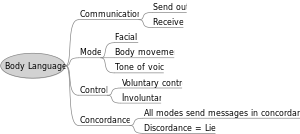We talk to ourselves all the time in our minds. Even when we're not paying attention, these relentless mental debates deeply influence our feelings and, ultimately, our behavior.
The good news is that if you can become aware of these mental dialogues, notice the patterns, and turn them intoproductive statements, then you are empowered to overcome many unwelcome feelings and behaviors.
Let’s see how this can help us when it comes to procrastination.
editSteps
- 1Recognize the procrastinator's motto. Consider the following thought, which surely crosses our minds many times in one form or another:
“I have to finish this important task. It should already be done by now and I just need to do it.”
This small, seemingly innocent thought contains almost every mental block that encourages procrastination. We all use the Procrastinator’s Motto (or variations of it) every once in a while. If you’re a chronic procrastinator, chances are you repeat it to yourself very frequently — daily, perhaps.
But what’s so wrong about the Procrastinator’s Motto? In what ways do these words encourageprocrastination so much — and what can we do about it? Let’s consider each part of this statement in turn, replacing each of them with an empowering alternative. In doing that, we’ll turn the original motto on its head and create a productive call to action: a “Producer’s Motto”, if you like.Overcome depression
Expert Tips, Info, News & Articles Treatment Options & Member Support
www.EverydayHealth.com/Depression - 2Remember that you don't 'have to' do anything. ‘I have to’ is every procrastinator’s favorite expression. It’s also the most disempowering. Every time you say to yourself that you have to do something, you imply that you don’t have any choice, that you feel forced or coerced to do the task — that you don’t really want to do it. That perception, of course, elicits a strong feeling of victimhood and resistance toward doing the task. The solution to this problem is to replace ‘I have to’ with the immensely more empowering alternative ‘I choose to’ or 'I will'. Everything you do is ultimately a choice (yes, even completing tax forms). Using language that expresses choice reminds you of that and brings the feeling of power back.
- 3Focus on starting, rather than finishing. When you focus on finishing something, you direct your attention to a vague, highly idealized future. Visualizing a finished project is motivating for many people, but for someone who’s having a hard time starting a task, visualizing a hard-to-grasp future can be overwhelming — even depressing. The solution in this case, then, is not to focus on finishing, but on starting. Forget for a minute about the finish line, just concentrate on giving your first step. Bring your focus from the future to what can be done right now. We all know that if we start something enough times, we'll eventually finish the task. Starting — all by itself — is usually sufficient to build enough momentum to keep the ball rolling.[1]
- 4Break a long project down into short tasks. Dwelling on the size and difficulty of a looming task will overwhelm us, and thus promote procrastination. Any undertaking, no matter how daunting, can be broken down into smaller steps. The trick is — with each step along the way — to focus solely on the next, achievable chunk of work. Ignore the big picture for a while and just tackle that next small task. Make sure you can easily visualize the outcome of your small task. Don’t write a book; write a page. If it is still intimidating, commit yourself to work on it for a specific period of time.
Keep the big picture in mind, of course, but don't allow it to frighten you. Use it for motivation and direction. - 5Don't place too much pressure on yourself. “This project has to impress everyone; I really can’t blow this opportunity.” Placing such high hopes on a project only adds anxiety and fear of failure.Perfectionism fuels procrastination. Overcome this mental block by simply giving yourself permission to be human. Allow yourself to be imperfect with the next small task. You can always refine your work later. If you’re a serial perfectionist, go one step further and commit yourself to doing a sloppy job on purpose — at least at first. Instead of making every step perfect, think of them as steps toward perfection. For instance, write a page or two now, then proofread and correct them later.
- 6Stop thinking about the way things 'should' be. The expression 'should' invokes blame andguilt. When you say you should be doing something (instead of what you’re actually doing), you focus on comparing an ideal reality with your current, “bad” reality. You focus not on what is, but on what could have been. Misused 'shoulds' can elicit feelings of failure, depression and regret. The solution is not to focus on how you feel now, but on how good you will feel after you begin to take action.
- 7Take some directed action. Even the tiniest progress is success — moving toward a goal is the best motivator. The trick is to bring that expected feeling of accomplishment into the present — and know that the real joy of progress is only a small task away. That small step is success.
Success is not the end of your task. Success is the progress that leads you to your next step. - 8Make it fun! “I’ve got to work all weekend”. “I am trapped in this laborious project”. Long periods of isolation can bring an enormous feeling of resentment. These feelings generate a strong sense of deprivation and resistance toward the task.
Overcome this mental block by avoiding long stretches of work. Schedule frequent and brief breaks. Plan small rewards along the way. One idea is to work near a break area. Have something to look forward to — not far away and not at the end of a long stretch — but in the very near future. When rewards are small, frequent, and deserved, they work wonders. Truly commit to brief bursts ofrelaxation and leisure time. In fact, go ahead and make it mandatory. This “reverse-psychology” can, by itself, give you a more productive and enjoyable mindset. - 9Rephrase your internal dialog. Time to check what we’ve accomplished with all the word substitutions. We started with:
“I have to finish this important task. It should already be done by now and I just need to do it.”
And ended up with:
“I choose to start this task with a small, imperfect step. I’ll feel terrific and have plenty of time for fun!”
Quite a change, eh? Every time you catch yourself repeating any part of Procrastinator’s Motto to yourself, stop and rephrase it. Then check how you feel. At first, it may seem to be a simple matter of word choices. But when you try this simple way of reframing your thoughts, you’ll see how it instantly changes your attitude toward your tasks. Moreover, if you turn it into a habit, you’ll slowly reprogram your thoughts, and make a positive, permanent change in your mindset.


















